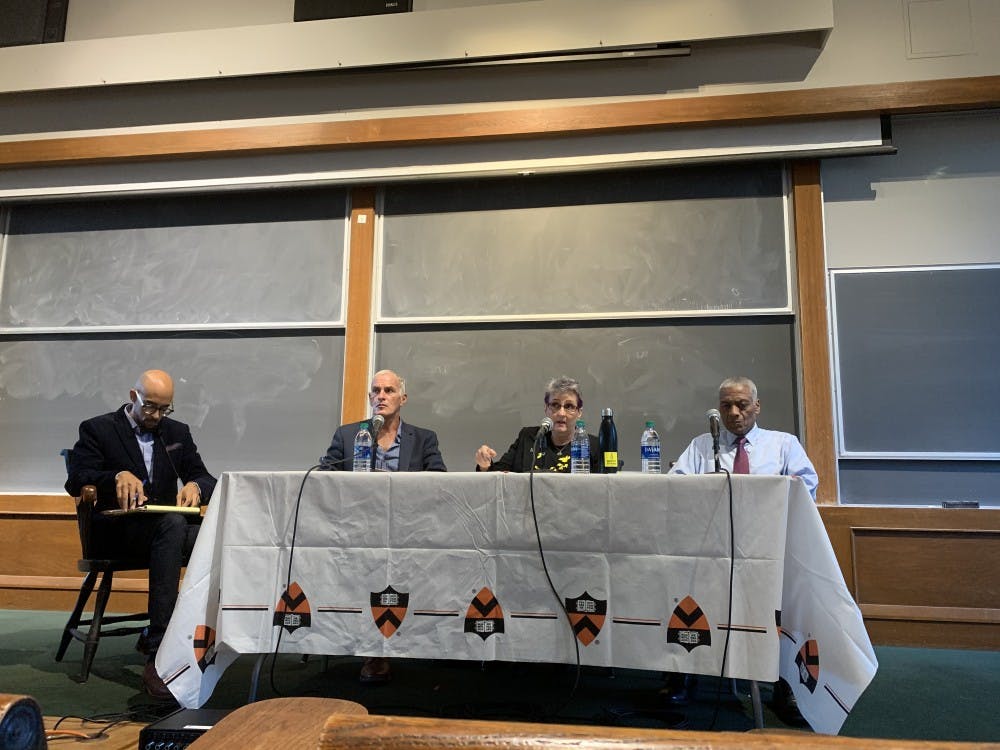This statement speaks only for the undersigned members of the Alliance of Jewish Progressives (AJP), and not for AJP as an organization.
Last Thursday, we, as members of the Alliance of Jewish Progressives, contributed to AJP’s co-sponsorship of “Fighting for Justice from Gaza to Ferguson: Black and Palestinian Solidarity,” a panel centered on historical and present-day solidarity between the liberation movements of black Americans and Palestinian people. AJP was invited to co-sponsor this event by the Young Democratic Socialists (YDS) and the Princeton Committee on Palestine (PCP), and chose to co-sponsor the event as part of its commitment to coalition building and allyship on the left, on this campus and everywhere. For this reason, along with AJP’s dedication to advocating for the rights of marginalized people, AJP was honored and moved to be invited to co-sponsor the event. The event, which featured three panelists and a moderator, was premised on critically engaging with the meaning of solidarity and the power of comparison in discussions about resistance. We, as members of a group that co-sponsored this event, stand by our belief that the mission of this panel and a continued conversation on its topic are incredibly important — particularly on Princeton’s largely white and politically apathetic campus, where activism is often stifled or denounced.
However, though the panel had the potential to be both informative and provocative, Norman Finkelstein’s presence onstage led it to be primarily the latter. Finkelstein chose to use this event as a platform for his own opinions on Gaza and the Israeli-Palestinian conflict rather than focusing on the panel’s intended subject. His derailment of the conversation further marginalized the people and movements that the event’s co-sponsors intended to elevate. It is unacceptable that Finkelstein failed to provide space for discussion of black and Palestinian liberation movements and repeatedly attempted to co-opt the conversation in service of his own agenda.
Furthermore, Finkelstein’s rhetoric was intentionally incendiary and aggressive even when speaking to respectful dissenters, including when he repurposed a Frederick Douglass phrase, originally used to describe fugitive-slave catchers, to liken members of the Israeli Defense Forces to “biped bloodhounds.” Finkelstein crossed the line when he claimed, as an extension of the metaphor, that the IDF is “drinking the blood of one million [Palestinian] children.” In doing so, Finkelstein invoked the well-known anti-Semitic trope of blood libel, further derailing the conversation and reinforcing a heinous misrepresentation of Jewish ritual that was brought about by and has resulted in many centuries of persecution and suffering.
Conversations about Palestinian rights far too often become centered on unfounded accusations of anti-Semitism. While this event was perverted by Finkelstein’s genuinely anti-Semitic and offensive remark, which we condemn without reservation, we are at the same time dismayed that his comments have made this necessary condemnation the focus of the event’s aftermath.
As articulated by Lawrence Hamm ’78 — one of the panelists, whose words were often drowned out by Finkelstein — “Criticism of Israel’s actions is not anti-Semitic.” But blood libel is, and we are profoundly disappointed that Finkelstein did not respect the importance of this discussion enough to avoid disparaging language and tangential controversy. We remain committed to engaging in complicated, difficult conversations about justice and injustice everywhere.
Signatories
Zora Arum ’22
Chaya Holch ’22
Rafi Lehmann ’20
Eli Berman ’20
Jo de La Bruyère ’22

Noam Miller ’21
Micah Newberger ’22
Jake Waksbaum ’20
Jo de la Bruyère is a Features editor at the ‘Prince.’








